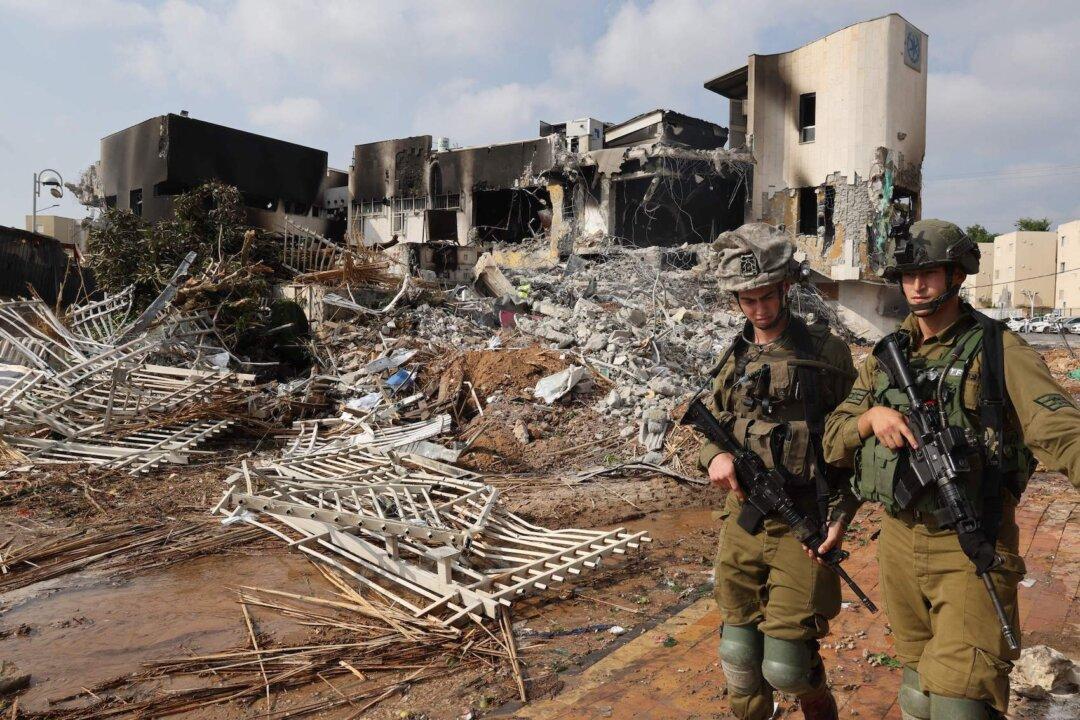The Palestinian terrorist group Hamas launched an unexpected attack on Israel on Oct. 7, prompting swift retaliation from Prime Minister Benjamin Netanyahu and the start of an all-out war that has already claimed the lives of thousands.
Within the four days since the unprecedented Hamas attack—conducted by land, sea, and air on the same day Israelis were celebrating the Jewish holiday Simchat Torah—Israeli forces launched their most intense strikes ever in the 75-year history of its conflict with Palestine.




